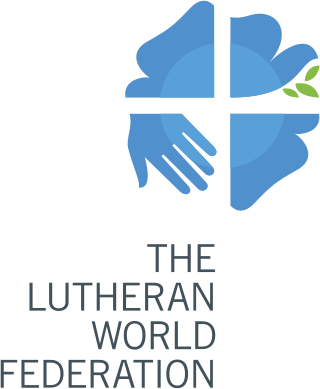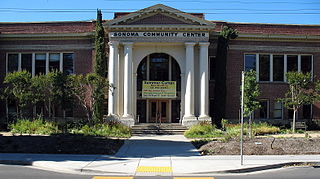
The World Council of Churches (WCC) is a worldwide Christian inter-church organization founded in 1948 to work for the cause of ecumenism. Its full members today include the Assyrian Church of the East, the Oriental Orthodox Churches, most jurisdictions of the Eastern Orthodox Church, the Union of Utrecht, the Lutheran World Federation, the Anglican Communion, the Mennonite churches, the World Methodist Council, the Baptist World Alliance, the World Communion of Reformed Churches, the Pentecostal churches, the Moravian Church and the Malankara Mar Thoma Syrian Church. Notably, the Catholic Church is not a full member, although it sends delegates who have observer status to meetings.

Bartholomew is the current Ecumenical Patriarch of Constantinople since 2 November 1991. In accordance with his title, he is regarded as the primus inter pares in the Eastern Orthodox Church, and as a spiritual leader of the Eastern Orthodox Christians worldwide.

Ecumenism – also called interdenominationalism, or ecumenicalism – is the concept and principle that Christians who belong to different Christian denominations should work together to develop closer relationships among their churches and promote Christian unity. The adjective ecumenical is thus applied to any non-denominational or inter-denominational initiative which encourages greater cooperation and union among Christian denominations and churches. Ecumenical dialogue is a central feature of contemporary ecumenism.

The National Council of the Churches of Christ in the USA, usually identified as the National Council of Churches (NCC), is the largest ecumenical body in the United States. NCC is an ecumenical partnership of 38 Christian faith groups in the United States. Its member communions include mainline Protestant, Eastern Orthodox, Oriental Orthodox, African-American, evangelical, and historic peace churches. Together, it encompasses more than 100,000 local congregations and 40 million adherents. It began as the Federal Council of Churches in 1908, and expanded through merger with several other ecumenical organizations to become the National Council of Churches in 1950. Its Interim President and General Secretary is Bishop Vashti Murphy McKenzie.

The Lutheran World Federation is a global communion of national and regional Lutheran denominations headquartered in the Ecumenical Centre in Geneva, Switzerland. The federation was founded in the Swedish city of Lund in the aftermath of the Second World War in 1947 to coordinate the activities of the many differing Lutheran churches. Since 1984, the member churches are in pulpit and altar fellowship, with common doctrine as the basis of membership and mission activity.
The World Student Christian Federation (WSCF) is a federation of autonomous national Student Christian Movements (SCM) forming the youth and student arm of the global ecumenical movement. The Federation includes Orthodox, Protestant and Catholic students.
The International Council of Community Churches (ICCC) is a Christian religious association of ecumenically co-operating Protestants and Independent Catholics. Based in Loudon, TN in the United States, it is the main organization of the Community Church movement. The ICCC is a member of Churches Uniting in Christ, the National Council of Churches of Christ in the USA and the World Council of Churches. In 2010, the ICCC had 148 congregations with 68,300 members. Membership is concentrated primarily in the Midwest. However, there are several congregations in California, New York, and Florida. According to the World Council of Churches, the council has 108,806 members worldwide.
Norwegian Church Aid is a Norwegian humanitarian and ecumenical organization with headquarters in Oslo. It was traditionally affiliated with the state Church of Norway, but has over time developed into an independent organization. The main goal of NCA is to work together with people and organizations across the world to eradicate poverty and injustice.

The 1910 World Missionary Conference, or the Edinburgh Missionary Conference, was held on 14 to 23 June 1910. Some have seen it as both the culmination of nineteenth-century Protestant Christian missions and the formal beginning of the modern Protestant Christian ecumenical movement, after a sequence of interdenominational meetings that can be traced back as far as 1854.

Munib Younan is a Palestinian Bishop Emeritus of the Evangelical Lutheran Church in Jordan and the Holy Land (ELCJHL).

A community centre, community center, or community hall is a public location where members of a community gather for group activities, social support, public information, and other purposes. They may be open for the whole community or for a specialized subgroup within the greater community. Community centres can be religious in nature, such as Christian churches, Islamic mosques, Jewish synagogues, Hindu temples, or Buddhist temples; though they can also be secular and in some cases government-run, such as youth clubs or Leisure centres.
The Congregational Federation of Australia and New Zealand is a Congregational denomination originally comprising fourteen congregations in New South Wales and Queensland but now including congregations in New Zealand.
The Building and Wood Workers' International (BWI) is the global union federation of democratic and free trade unions in the building, building materials, wood, forestry and allied industries.

The Young Women's Christian Association (YWCA) is a nonprofit organization with a focus on empowerment, leadership, and rights of women, young women, and girls in more than 100 countries.

The National Council of Churches in the Philippines is a fellowship of ten Protestant and non Roman Catholic Churches in the Philippines denominations, and ten service-oriented organizations in the Philippines. A member of the World Council of Churches and the Christian Conference of Asia, the NCCP represents close to twelve million Protestant adherents. Advocacy for environmental protection and against large-scale mining are part of its core mission. Christian organizations other than churches may be received as associate members.
The Dicastery for Promoting Christian Unity, previously named the Pontifical Council for Promoting Christian Unity (PCPCU), is a dicastery within the Holy See whose origins are associated with the Second Vatican Council which met intermittently from 1962 to 1965.

Olof Sundby was a Swedish bishop within the Church of Sweden. He was the archbishop of Uppsala in the period 1972–1983.
The National Council of Churches in Korea is a non-Catholic Christian ecumenical organization founded in Korea in 1924 as the National Christian Council in Korea. It is a member of the World Council of Churches and the Christian Conference of Asia.
The Student Christian Movement of the Philippines (SCMP) is a youth ecumenical national democratic mass organization in the Philippines. It aims to uphold students rights and participates in numerous local and worldwide peoples' advocacies. As with other SCMs around the world, SCMP is a member of the World Student Christian Federation. In the Philippines, it is an associate member of the National Council of Churches in the Philippines (NCCP) and Kalipunan ng Kristiyanong Kabataan sa Pilipinas (KKKP). It is also a member and a founding organization of Kabataan Partylist.










